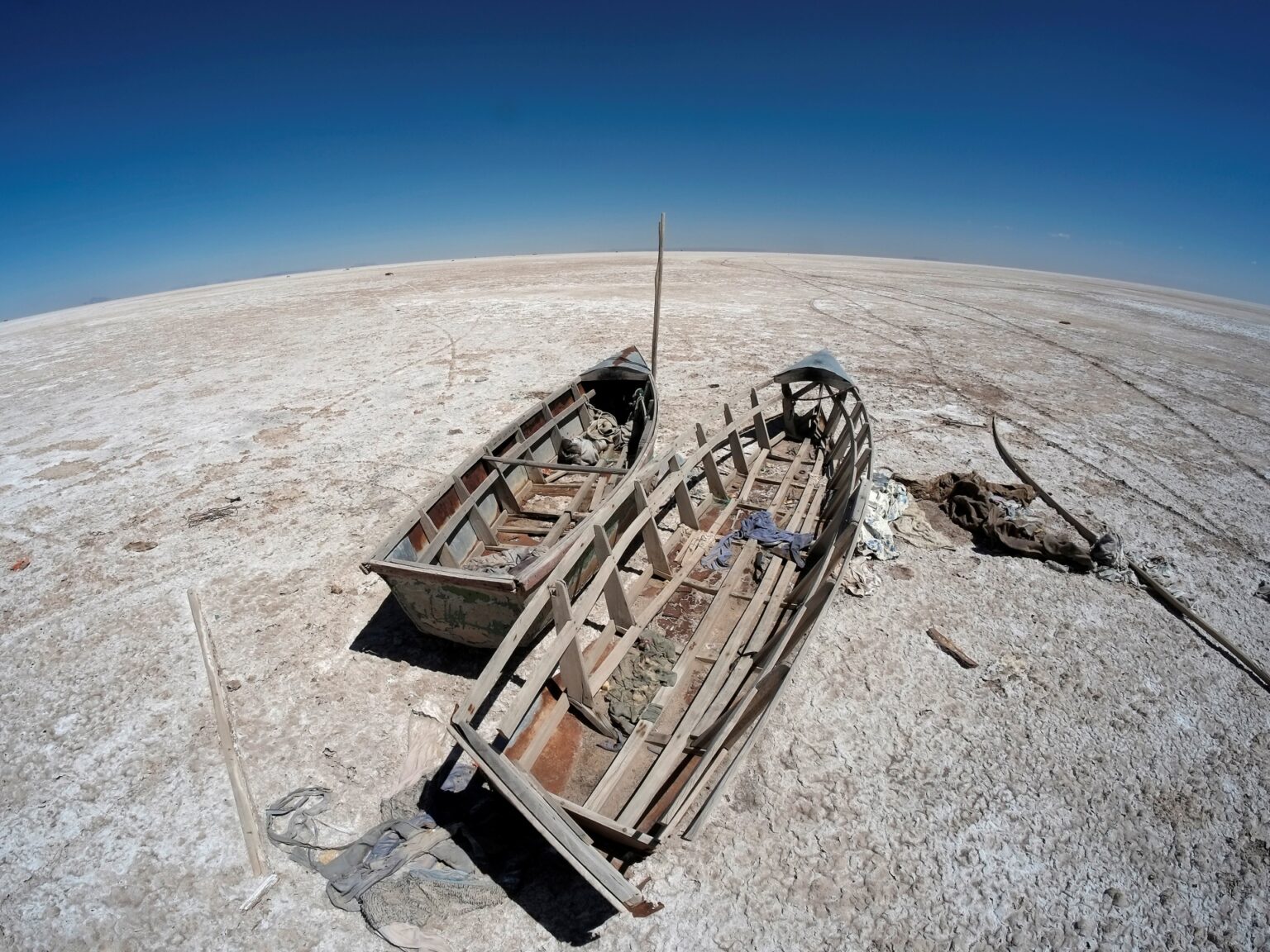Global Courant 2023-05-19 10:33:49
New research shows that unsustainable human use has caused more than half of the world’s largest lakes to dry up.
More than half of the world’s major lakes and reservoirs have shrunk since the early 1990s, largely due to climate change, raising concerns about water for agriculture, hydropower and human consumption, a new study finds.
A team of international researchers reported Thursday that some of the world’s major freshwater resources — from the Caspian Sea between Europe and Asia to Lake Titicaca in South America — have been losing water for nearly three decades at a cumulative rate of about 22 gigatons per year.
That’s about 17 times the volume of the largest reservoir in the United States – Lake Mead.
The study published in the log Science found that lakes, such as the Aral Sea in Central Asia and the Dead Sea in the Middle East, dried up due to unsustainable human use, while lakes in Afghanistan, Egypt and Mongolia were hit by rising temperatures, which could increase water loss to the atmosphere .
Water levels also rose in a quarter of the lakes, often due to the construction of dams in remote areas such as the Inner Tibetan Plateau.
Natural lakes and dams store about 87 percent of the Earth’s fresh water, even though they only cover 3 percent of the Earth’s surface. The report is based on satellite imagery data collected between 1992 and 2020.
Fangfang Yao, a surface hydrologist at the University of Virginia who led the study, said 56 percent of natural lake decline was caused by climate warming and human consumption, with warming “most of that.”
Climate scientists generally think that the arid areas of the world will get drier with climate change and wet areas will get wetter, but the study found significant water loss even in humid areas.
“This should not be overlooked,” Yao said.
Scientists assessed nearly 2,000 large lakes using satellite measurements combined with climate and hydrological models. They found that unsustainable human use, changes in rainfall and runoff, sedimentation and rising temperatures have caused lake levels to fall worldwide, with 53 percent of lakes declining from 1992 to 2020.
Spain recently reported that reservoirs in the northeastern region of Catalonia are about 26 percent full after months of drought. By comparison, in 2022 that figure was 58 percent full.
In Italy, unusually low water levels were recently recorded for Lake Garda compared to the same period in 2022. The water level was 50 percent lower compared to the previous year.
The water level of Lake Garda dropped critically in 2022 due to severe drought, creating rocks around the shores of the town of Sirmione (File: Antonio Calanni/AP Photo)
Scientists and campaigners have long said that preventing global warming above 1.5 degrees Celsius (2.7 degrees Fahrenheit) is necessary to avoid the most catastrophic impacts of climate change. The world is currently warming at a rate of about 1.1C (1.9F).
(TagsToTranslate)News








